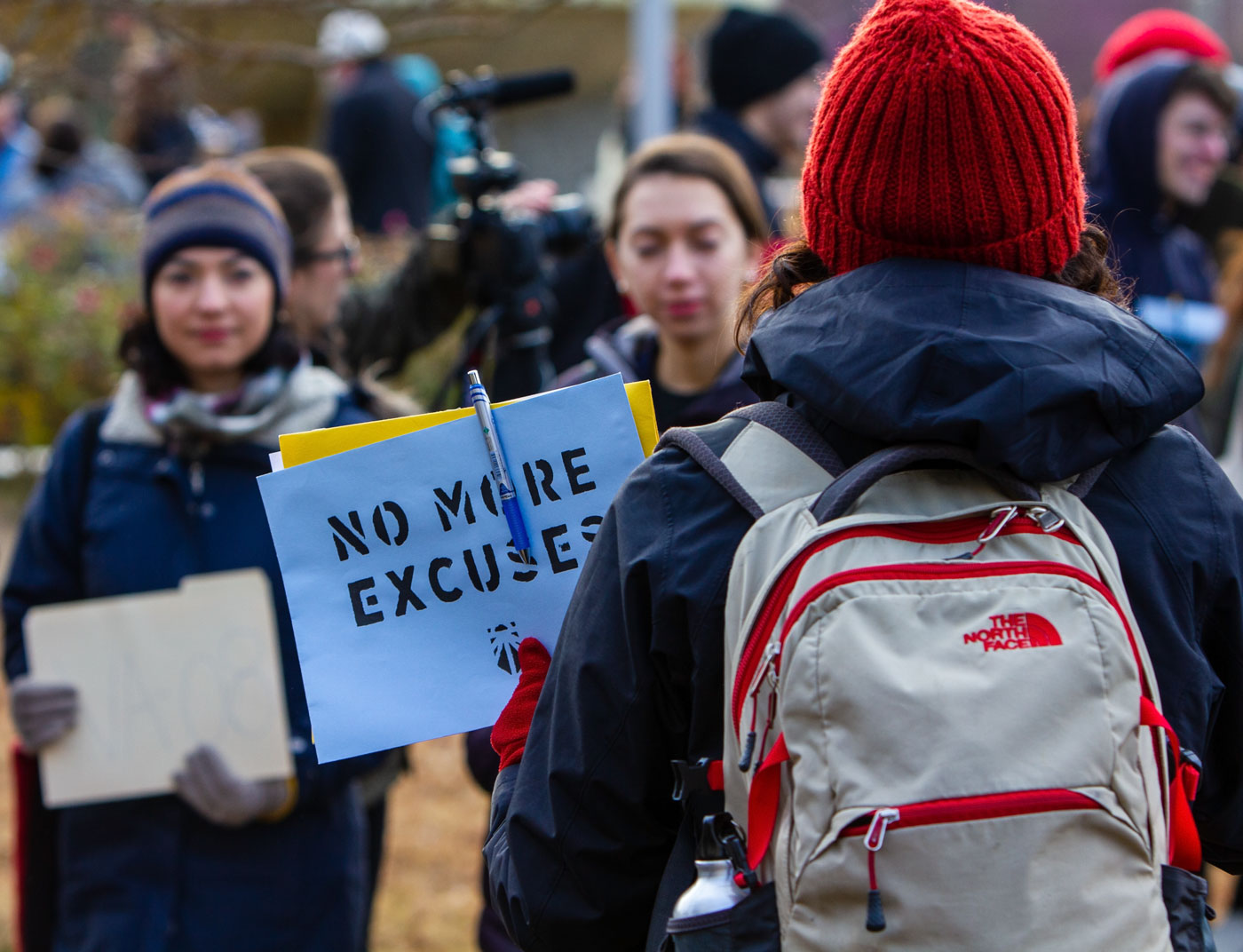With youth turnout for elections at an all-time high, accounting for youth public opinion has become a requirement for any 2020 presidential hopeful. According to the latest Harvard Public Opinion Project Youth Poll, this means that candidates must be sure to focus on immigration reform and climate change, the top priorities on young voters’ political agendas. Given a lack of consensus around these issues in national political discourse, lawmakers who aim to address climate change and immigration face a daunting task. While Democrats must focus on these issues in order to court the youth vote, they must also consider the feasibility of their policy proposals if they want to enact meaningful change.
Pushing for Immigration Reform
It is clear that young Americans want to see immigration reform. Among those polled by HPOP, 15 percent stated that immigration was the most important issue to them. For Hispanic voters, this number rose to 18 percent. Given this finding, it is surprising that most primary candidates have taken only “vague” policy stances on immigration. To date, only Julian Castro has released a specific policy plan for comprehensive immigration reform; this plan includes creating paths to citizenship for illegal immigrants, increasing refugee admissions, and dismantling the U.S. Immigration and Customs Enforcement Agency.
Supporting comprehensive reform and increased access to legal channels for immigration will allow Democratic candidates to distance themselves from the policies of the Trump Administration, which have been restrictive of both legal and illegal immigration. Yet candidates may also need to take stronger policy stances to distinguish themselves from the rest of their primary pack.
However, more drastic reforms, including Castro’s proposal to decriminalize border crossing, will likely be difficult to implement in practice. This is particularly true given the partisan divide over immigration among lawmakers and the inability of Congress thus far to reach a compromise on more centrist immigration reforms, such as extending protections for DACA recipients, despite growing public pressure to do so. Candidates will and should focus on immigration, but the political obstacles to implementing reform may make it challenging for any Democrat to fulfill promises about immigration made on the campaign trail if he or she takes the White House.
Combating Climate Change
The issue of climate change is another top priority for young voters, with HPOP data showing that 45 percent of them believe that climate change is a crisis that demands urgent legislative action. Perhaps surprisingly, due to Republican’s historic skepticism of climate change, this concern about climate change is shared by members of both parties. A majority of both Republicans and Democrats polled view climate change as a problem, including 57 percent of Republicans and 82 percent of Democrats. This bipartisan consensus among young Americans greatly contrasts with the prevailing sentiments of Republican representatives, as “nearly 60 percent of Republican members — who make up 28 percent of the current Congress — still do not believe in climate change and the urgent threat that it poses.”
While those polled agreed on the broad need for climate policy to come into place, however, they were far more divided about what such policy should look like. Among those who affirmed that climate change is a crisis that demands urgent action, 57 percent strongly support the Green New Deal’s proposals, which include retrofitting buildings to be environmentally sustainable, overhauling transportation systems, and achieving a zero-carbon economy by 2050. By contrast, 29 percent think the GND does not adequately account for its potential negative economic impact.
Although several Democratic candidates have already expressed support for many tenets of the GND, which may help them garner the youth vote, promising radical upheavals in America’s energy sector, if they are not feasible, may ultimately leave young voters disappointed. Speaker of the House Nancy Pelosi (D-Calif.) has expressed concerns about the GND’s feasibility, while its projected annual cost of $6.6 trillion and potential negative economic effects — including a drastic increase in the budget deficit and slowing of economic growth — have also generated skepticism. Opposition to the GND both by Republicans and “establishment” Democrats continues to present a clear barrier its implementation.
HPOP findings suggest that America’s youth is ready for bold policy reforms on immigration and climate change. Accordingly, candidates should continue to focus most on these issues in order to remain relevant to young voters. Yet while support for policies such as the GND and more open access to immigration is high, candidates should be cognizant of the difficulty of implementing ambitious proposals. These more extreme measures may sound good on the campaign trail but they will do little good for young voters if they cannot be put into practice afterward. By supporting radical reforms to combat the climate and immigration policies of the Trump Administration, 2020 Democratic primary candidates may earn young voters’ support at the cost of adopting proposals that prove impossible to turn into law after taking the Oval Office.
This article is part of a series analyzing data from the Harvard Public Opinion Project’s Spring 2019 Youth Poll. Other articles in the series can be found here, and the poll data can be found here.
Image Credit: Flickr/Becker1999
